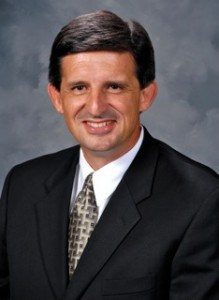Friends in the SC Baptist State Convention introduced Dale Roach to the Leading From Your Strengths profile soon after he took on the role Director of Missions for the Moriah Baptist Association (Lancaster, SC).
“I showed the profile results to my wife and watched her smile,” says Dale. “All she could say was, ‘This is you!’”
The profile became an integral tool for Dale as he ministered to pastors in the 56 churches that made up the association as well as in his work as the brainchild of Like A Team, a leadership and teamwork development resource on the web.
Dale began to form small cell groups within the association, made up of five to six pastors, who made a commitment to meet together for one year to develop their leadership skills and support each other. As new cell groups formed, Dale introduced the members to the LFYS profile.
“Many of these pastors benefited tremendously from completing the profile,” says Dale. “They began using the data in their ministries.”
So when Dale transitioned back to leading a congregation, he determined that he would do the same.
Get Data Before Making Assumptions
Dale admits that many of the biggest mistakes he made in the past as a leader have evolved from assumptions. Often, he says, he did not stop to think about the other person’s point of view. Instead he had assumed he read people correctly when in fact he did not have complete information.
So when Dale was called as senior pastor of First Baptist Church in Manning, SC, one of his first objectives was to schedule a retreat for his new staff. During that time, they completed the LFYS profiles.
The retreat was a turning point.
Several of the staff members had been working together for many years. In that kind of environment it can be easy to make assumptions about what other people think. However, no one had ever introduced the staff members to the idea of examining their own personalities and understanding the personalities of the others on the team.
“Although there was some assumption from each person as to how others on our church staff thought, it was very powerful to actually see and hear from each other,” says Dale. “Knowing a colleague’s strengths and characteristics can take a leader to a higher level in understanding.”
Dale experienced at least two benefits in using the profiles at the start of his tenure. First, he was able to make a smoother transition himself because he had an objective basis from which to communicate with his staff, rather than guessing about best ways to communicate. And second, his staff now had greater clarity about their individual and collective strengths. They were able to communicate and work together more effectively.
Data Is More Powerful than Assumptions
For Dale, the profile has become a foundational tool to helping him understand people and see the unique characteristics of individuals he is called to lead. The profile’s data and recommendation give him skills he needs, says Dale, which are far more powerful than assumptions.
“I have come to believe that knowing team members is absolutely foundational for success and healthy teamwork development,” says Dale. “The profile can help any leader discover the strengths of their team members so they can work well together.”
Spoken like a true team leader.
More about Making Healthy Transitions
Canadian Leader Helps Mid-Lifers, Teams Transition Well
Pure Flix, Personal Growth, and the Profile
Church Staffing Transition: Don’t Marry Rachel and End Up with Leah
Ministry Consultant Uses Profiles to Build Teams in Transition

